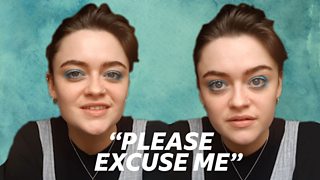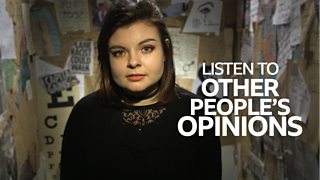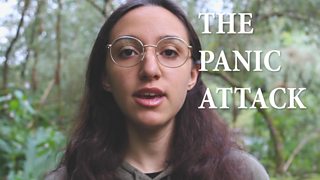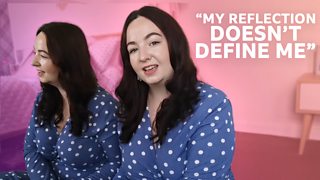Spoken word helps me express my experience of albinism
By Ellen Renton // Βι¶ΉΤΌΕΔ The Social contributor // 27 July 2020
The Scottish spoken-word scene is thriving, and artists from across the country have joined forces as viewers take a deep dive into their intimate and creative world. One of the artists featured in The Social Presents Spoken Word is Ellen Renton.
She has written about falling into the scene, crafting her words through experience and albinism.
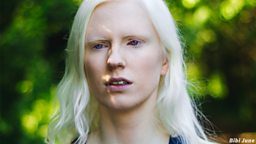
I fell into performing by accident. In 2015, I read a poem as part of a writing group showcase in Glasgow. After my reading, a member of the audience asked if I performed often and, if I'm honest, I wasn’t too sure what she meant by it. Poetry had always been something that I’d enjoyed privately but maybe it was time to share my words with more people. I went along to my first open mic at a pub called Broadcast and, from then on, I was hooked.
The feeling of performing my own writing is still unrivalled. I love the sensation of nerves giving way to relief when I reach a poem’s final line. I love the moments when a particular word or phrase elicits a collective reaction from the audience.
Much of my writing is influenced by my experience of being visually impaired.
Representations of disability, and the lived disabled experience, are so rarely nuanced and that’s something that needs to shift in order for us to bring about any real change.Ellen
I was born with albinism which is a rare genetic condition that affects roughly every 1 in 17000 people. My body is unable to produce melanin which means I have very pale hair, skin, and eyes. It’s the absence of pigment in my eyes that results in partial sight.
In some ways, poetry is very much a visual art form that is spoken in terms of imagery and insight. It’s also about rhythm, sound and musicality. With poetry, I’m able to write about my own sensory experience of the world and how I, quite literally, see things differently.
My performance, for The Social Presents, is based on a confession.
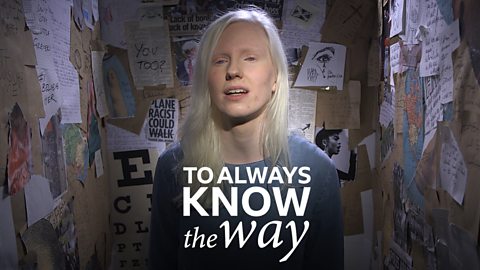
To Know The Way | Fess Up With Ellen Renton
"I imagine what it must be like to always know the way."
Initially, this felt like quite a daunting brief because I wasn’t too sure if there was anything that I wanted to confess publicly.
As I sat down to write, I was thinking about lying and the small lies that people tell day to day to make life easier for themselves. When it comes to my eyesight, I’m guilty of doing this all the time, particularly when I’m around new people. It’s a habit that I’m trying to drop. But often, as the poem explains, my instinct leans towards smoothing over a blip in conversation. I try putting other people at ease rather than being frank about my sight.
Writing about this felt like a confession on several levels.

In the obvious sense, I was confessing my dishonesty. The more I thought about the motives behind my wee lies, I realised that I felt guilt for a more complicated reason. By prioritising the social comfort of others above my own visual needs, I was apologising for my disability. I was making myself smaller.
Consciously, this is something I would never do but I had been allowing myself to get away with it under the guise that it was the polite and more socially acceptable way to behave.
Having a disability is a complex thing and it can mean something different from one day to the next. I hope this poem goes some way to illustrating that. Representations of disability, and the lived disabled experience, are so rarely nuanced and that’s something that needs to shift in order for us to bring about any real change.
In confessing to the ableism that I have internalised, I hope others might be able to acknowledge their role in that system too.
More often than not, I write poems that never go anywhere beyond the covers of my notebook. Sometimes, I write something that I’ll share with a friend. When I’m lucky, a poem that I’ve written finds a home - whether that’s on a stage, in a magazine or on film. Very occasionally, and in the case of this poem, a piece that I’ve written helps me to arrange my own thoughts and allows me to understand myself a bit better. Maybe that’s the real power of poetry.

